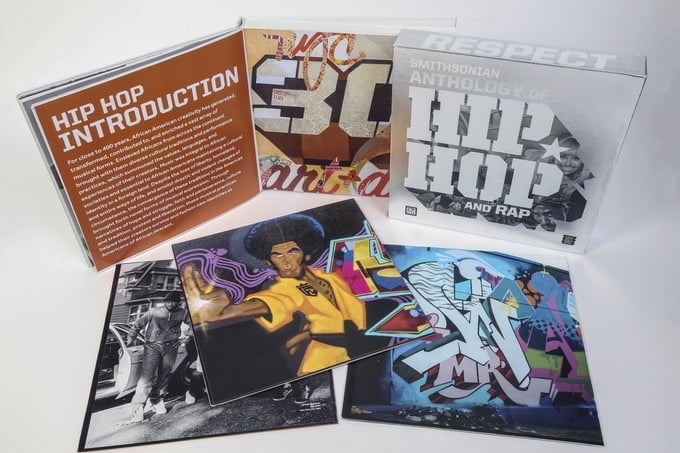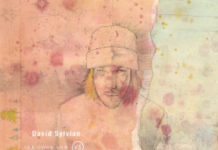As a musical, cultural and social force of the last 40 years, hip-hop is taking its place in the Smithsonian — an institution devoted to preserving and documenting our nation’s heritage.
That’s why the National Museum of African American History and Culture is partnering with their GRAMMY Award-winning record label, Smithsonian Folkways Recordings, to create the Smithsonian Anthology of Hip-Hop and Rap — a cultural statement told through music, text and powerful visuals. And they’ve launched a Kickstarter campaign, too.
This will be the third major anthology produced by Smithsonian Folkways Recordings that tells the story of a defining era of music “of, by and for the people,” following the Anthology of American Folk Music and Jazz: The Smithsonian Anthology. It will also serve as an extension of the objects and stories of hip-hop already displayed in the galleries of the National Museum of African American History and Culture, offering perspective on the African American experience and its impact on American culture. The Anthology will be a tool for education as it explores hip-hop’s evolution and global influence.
Creating something this ambitious is not easy. The Smithsonian Anthology of Hip-Hop and Rap will be the first collection of its kind to include music from all the major labels as well as dozens of independent record labels.
The Smithsonian Anthology of Hip-Hop and Rap will illustrate different social and political trends within the genre, such as police brutality, feminism, and Afrocentrism. It will explore these themes through music from old school pioneers like the Sugarhill Gang and Roxanne Shanté to artists of today like Kanye West and Nicki Minaj — and four decades’ worth of essential names in between.
The Anthology was developed by the Smithsonian in collaboration with an advisory board comprised of members of the hip-hop community including artists Chuck D, MC Lyte, Questlove and 9th Wonder; industry veterans Bill Adler and Bill Stephney; author, journalist and music critic Jeff Chang; and university scholars and authors Adam Bradley (University of Colorado, Boulder), Cheryl Keyes (UCLA) and Mark Anthony Neal (Duke).







